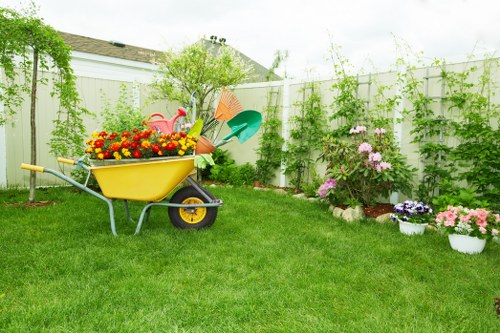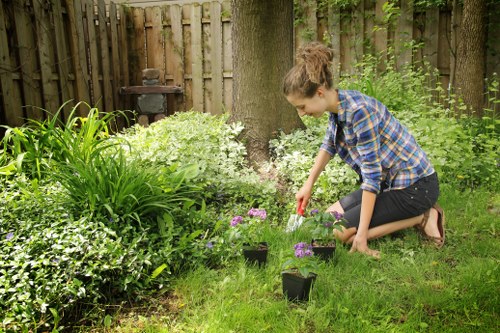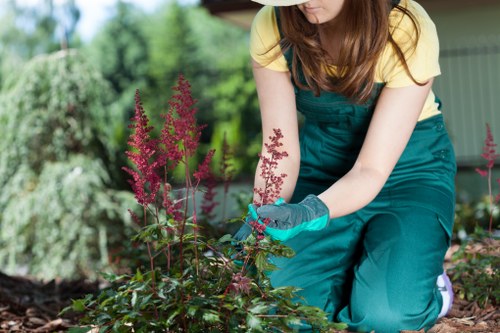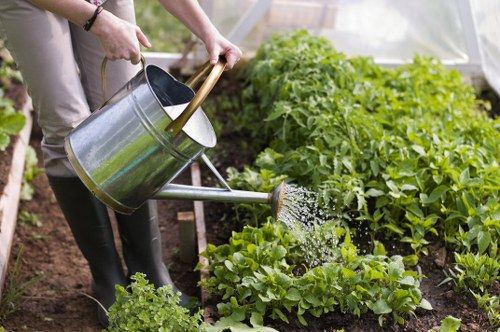
Great Gardeners: A Journey Through Timeless Green Legacies
In the world of horticulture, great gardeners have continuously transformed barren plots into vibrant paradises. Their dedication not only fuels natural creativity but also inspires communities to reconnect with nature. Iconic gardens stand as monuments to these remarkable individuals—expert gardeners, master gardeners, and legendary horticulturists—all of whom serve as stewards of our green spaces. The impact of their work is profound, stretching from the historic palace gardens of Europe to local community gardens in bustling urban areas. With each seed planted, these gardeners share more than just horticultural expertise; they share a legacy that is steeped in passion, sustainable practice, and innovation.The Art and Science Behind the Green Canopy
As nature intertwines with human creativity, gardening evolves into an art form as well as a science. Gardeners carefully select plants based on their soil, shade, and water needs, creating ecosystems that are both beautiful and resilient. Often, these techniques are handed down through generations, refined carefully into an intricate choreography of nature and nurture. Great gardeners are known for melding traditional planting methods with modern ecological awareness—a unique blend that sustains diverse flora in both small backyard plots and vast botanical gardens. Their gardens are living museums that tell a story of evolution, experimentation, and a deep respect for the earth.
The Rise of Expert Gardeners in a Changing World
Throughout history, innovative horticulturists have redefined what it means to cultivate living landscapes. From establishing sustainable practices to embracing organic methods, these innovators have become the architects of our outdoor sanctuaries. In many instances, expert gardeners initiated movements that championed local flora and fauna, modernizing ecological practices and promoting biodiversity. They have navigated challenges such as climate shifts and urban expansion, continually adapting and inspiring future generations. Techniques once thought antiquated have seen a rebirth, as traditional methods are fused with contemporary technology. This creative fusion has given rise to breathtaking garden designs and established a new benchmark for environmental stewardship.- Innovative Irrigation: Efficient water systems developed by master gardeners echo decades of research and practical experience.
- Soil Revitalization: Experts apply organic compost and natural fertilizers to improve soil health and plant vigor.
- Native Plant Revival: Emphasizing indigenous species helps maintain local ecosystems and reduce invasive threats.
 One of the most compelling aspects of this green revolution is the role great gardeners play in advocating for sustainability. Renowned gardeners have been pivotal in promoting eco-friendly practices that demonstrate how agriculture and nature can exist in mutual respect. Their efforts extend beyond the garden; they educate communities, collaborate with environmentalists, and serve as champions for a greener, more sustainable planet. By incorporating renewable resources, reducing chemical dependencies, and embracing permaculture techniques, these visionaries have set a standard that resonates far beyond their own gardens. Their philosophies and methods have often translated into scalable models that cities and rural areas alike have adopted to address environmental challenges.
One of the most compelling aspects of this green revolution is the role great gardeners play in advocating for sustainability. Renowned gardeners have been pivotal in promoting eco-friendly practices that demonstrate how agriculture and nature can exist in mutual respect. Their efforts extend beyond the garden; they educate communities, collaborate with environmentalists, and serve as champions for a greener, more sustainable planet. By incorporating renewable resources, reducing chemical dependencies, and embracing permaculture techniques, these visionaries have set a standard that resonates far beyond their own gardens. Their philosophies and methods have often translated into scalable models that cities and rural areas alike have adopted to address environmental challenges.
Delving deeper into the evolution of garden care, modern techniques blend the wisdom of traditional horticulture with the precision of contemporary science.
Modern Expertise in Gardening: Bridging Tradition and Innovation
Today, the practice of gardening is a dynamic interplay between master gardeners who honor age-old traditions and the new wave of tech-savvy horticulturists who explore digital solutions for sustainable planning. Community gardens have become epicenters of change where technology meets nature, offering specially designed apps that help in monitoring plant health, scheduling watering cycles, and even alerting gardeners about weather changes. This seamless integration of nature and technology stands as a testament to how evolving techniques can support the natural world without sacrificing aesthetic beauty or ecological balance. At its heart, modern gardening remains a testament to human ingenuity, thriving on an ever-expanding repertoire of innovative practices that honor both heritage and progress. In the heart of modern horticultural trends, technological advancements in organic gardening have revolutionized the way we interact with nature. Advanced data analysis and smart gardening tools now empower gardeners to monitor their green sanctuaries with pinpoint accuracy. For instance, moisture sensors, climate control systems, and even AI-assisted plant care apps have become commonplace. The impact of these innovations is far-reaching: improved yield, enhanced biodiversity, and reduced environmental waste. As trends shift towards urban agriculture, these tools help maintain a healthy balance between built environments and natural ecosystems. Future-forward gardeners are not simply planting seeds in the dirt, but also in the digital realm where algorithms support organic growth and eco-friendly practices. This intertwining of technology and nature has given rise to a generation of eco-conscious cultivators who prioritize sustainability and are unafraid to challenge the status quo of traditional gardening methods.
In the heart of modern horticultural trends, technological advancements in organic gardening have revolutionized the way we interact with nature. Advanced data analysis and smart gardening tools now empower gardeners to monitor their green sanctuaries with pinpoint accuracy. For instance, moisture sensors, climate control systems, and even AI-assisted plant care apps have become commonplace. The impact of these innovations is far-reaching: improved yield, enhanced biodiversity, and reduced environmental waste. As trends shift towards urban agriculture, these tools help maintain a healthy balance between built environments and natural ecosystems. Future-forward gardeners are not simply planting seeds in the dirt, but also in the digital realm where algorithms support organic growth and eco-friendly practices. This intertwining of technology and nature has given rise to a generation of eco-conscious cultivators who prioritize sustainability and are unafraid to challenge the status quo of traditional gardening methods.
Continuing this discussion on technological integration, the community aspect of gardening cannot be overlooked. Educational programs, local workshops, and digital forums have transformed how knowledge is shared among gardeners. In many neighborhoods, expert gardeners turn community spaces into hubs of rural education, offering practical demonstrations and interactive sessions on various topics—from soil regeneration to intricate landscape designs. These communal exchanges not only increase awareness about organic practices but also foster a strong sense of community responsibility. One can often observe enthusiastic gatherings where effective, hands-on training melds with digital communication, ensuring that both novice and seasoned gardeners continuously benefit from shared experiences and the collective wisdom of their peers.
The artistry of gardening transcends the simple act of planting. It is a dynamic dance that balances environmental stewardship with creative expression.
Cultivating Creativity: The Intersection of Art and Ecology
Great garden designers incorporate principles of balance, contrast, and harmony, mirroring the dynamics found in classical art. By integrating a variety of elements—ranging from native wildflowers to exotic ornamental species—these gardeners create immersive spaces that tell a unique story. Legendary gardeners remind us that every plant has a personality and every garden is a narrative with seasons of change. Their use of pathways, water features, and living sculptures turns gardens into interactive canvases that engage the senses and spark the imagination. Through their visionary work, they not only nurture nature but also evoke emotions and memories in those who visit these green havens. Looking to the future, the new generation of visionary gardeners is emerging with a fresh perspective on ecological design.
Looking to the future, the new generation of visionary gardeners is emerging with a fresh perspective on ecological design.
The Next Generation of Garden Innovators
These forward-thinking horticulturists are redefining garden aesthetics, embracing cutting-edge design and sustainable practices. They experiment with vertical gardens, rooftop ecosystems, and smart greenhouses that utilize renewable energy and automated care systems. Their explorations are not only environmentally beneficial but also add a modern, artistic touch to traditional garden layouts. Among the notable trends are the innovative uses of recycled materials and indigenous design elements that celebrate local culture and history. These trailblazers are setting benchmarks that not only anticipate ecological changes but also respond to them with elegance and ingenuity. Their gardens are a clear reflection of a world where ingenuity meets environmental respect, pushing the boundaries of what is possible in garden design. In conclusion, the legacy of great gardeners is one of perpetual growth, innovation, and profound connection with nature.
In conclusion, the legacy of great gardeners is one of perpetual growth, innovation, and profound connection with nature.